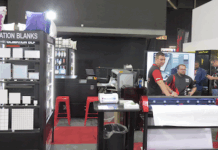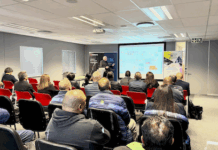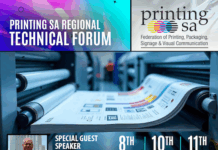According to John Tschohl of the Service Quality Institute, when employees are empowered and given responsibility, they use their talents and skills to maximise the opportunities. Empowerment means every employee has to make fast decisions in favour of the customer. It’s important that we are honest and sincere in our efforts to service our customers.
It’s important to train employees and make sure they have trust in what empowerment will bring to a company. Satisfying customers quickly benefits everyone. Moreover, happy, empowered and fulfilled employees are the key to creating ‘over-happy customers’ for your company.
In my book Empowerment, a Way of Life, I illustrate four challenges that all businesses face:
1. Many executives don’t trust the customer and believe they are trying to take advantage of them. Employees feel the same way.
2. We don’t trust employees. We pay them as little as we can and have even less confidence in their ability to make decisions. We have a belief that our lying, cheating customers are going to take advantage of our incompetent employees.
3. With empowerment you don’t need as many managers and supervisors. They’re not overly excited about losing their perceived power, nor are they thrilled about the potential of losing their jobs.
4. Very few employees are on their knees at night praying for empowerment. It’s just too risky.
The first rule of excellent customer service is to never use ‘no’. People who always manage to find a way to make things happen, to always find a ‘yes’ and do it, are priceless. Give your employees the tools and the trust to use empowerment for the benefit of the customer and the company. Empowerment is not about breaking the rules, but bending them to keep the customer happy. It is making fast decisions on the spot in favour of customers.
Hyatt Hotels treats different customers differently. Since they know who their best customers are, they’re working not to charge them more, but to give them more. They’re setting out to randomly cover bar tabs, offer free massages and provide other services that they could otherwise charge for. If they do it in a corporate, by-the-book way, it’ll feel fake and will fail. But if they empower their employees to actually be generous, it can’t help but work.
‘Not my job’ are three words that can kill an entire organisation. Empowerment allows the employee to make a decision on the spot for the customer instead of working their way through a paralysed system to figure out what to do next. Give employees the authority to take action. No one should have to go ‘higher up’ to get permission to help a customer. Empower everyone to break the rules, thus allowing employees to have input and control over their work. When people with problems call your company, the first employee who answers the phone should be able to solve the problem.
What are you building? In a world of mediocrity that relentlessly races to the bottom, you lose if you also race to the bottom. The only way to win is to race to the top and empowerment is one of your most valuable tools. My definition of empowerment is getting an employee to make a fast decision, on the spot, in favour of the customer.
Understand what drives customer value, then figure out where empowerment can improve the quality, speed and cost with which that value is delivered. Empowering people in the organisation to use their best judgment turns out to be faster and cheaper — but only if you hire the right people and reward them for having the right attitude.
I have been passionate about empowerment and continue to preach on the subject. It is a tool for every successful company to use to deliver exemplary service to every person that walks through your doors.
John Tschohl is a professional speaker, trainer, and consultant. He is the President and founder of Service Quality Institute with operations in over 40 countries. He is considered to be one of the foremost authorities on service strategy, success, empowerment and customer service in the world.
John Tschohl www.johntschohl.com















